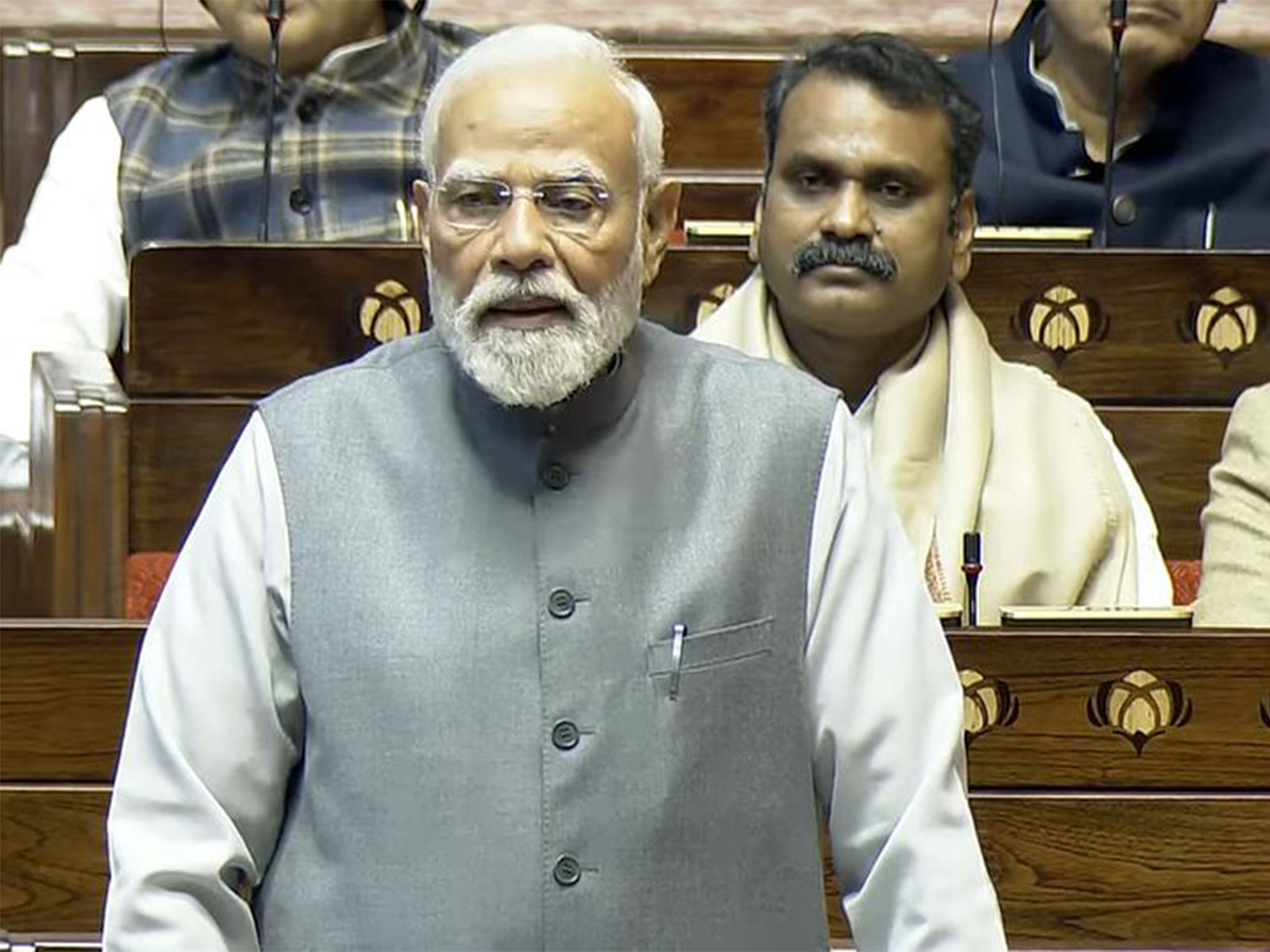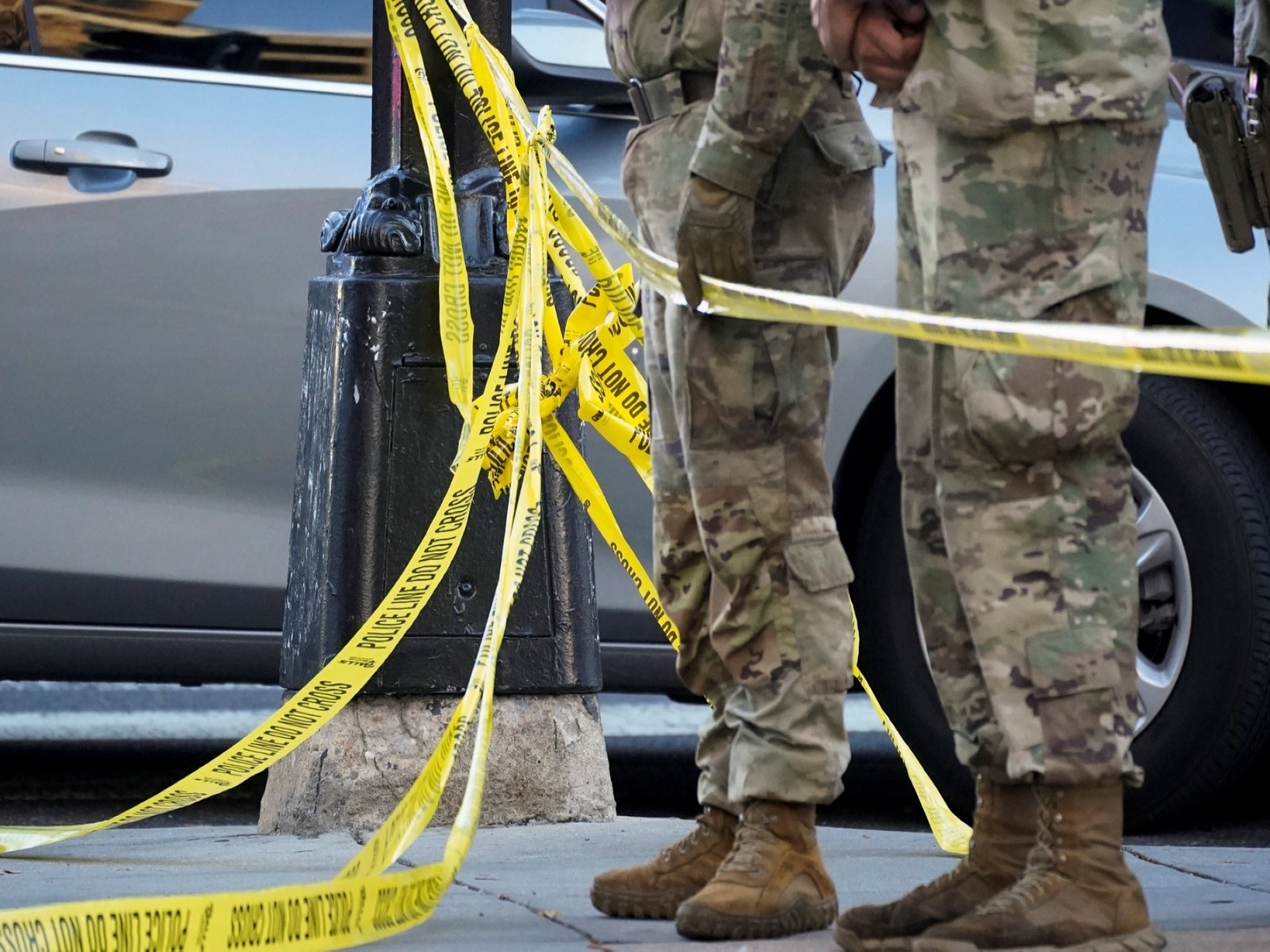Exclusive: BJP uses Delhi municipal schools to push Modi line on note ban

The Bharatiya Janata Party (BJP) seems to be using schools to "educate" parents about the virtues of Prime Minister Narendra Modi's demonetisation move.
On 24 November, the BJP-ruled North Delhi Municipal Corporation, which is part of the trifurcated Municipal Corporation of Delhi (MCD), issued a circular to all the schools under its jurisdiction, stating a point-wise agenda for a Parent-Teacher Meeting (PTM) to be held on Saturday, 26 November.
The circular has been issued in the name of Mamata Nagpal, chairperson of the education committee. Nagpal belongs to the BJP and represents the Shalimar Bagh ward in the North Delhi Municipal Corporation.
One of the directives in the circular was: "Not to panic due to demonetisation policy".
A visit to one of these primary schools on Saturday made it clear that demonetisation was the most pressing issue for these parents, though the circular mentioned other points too.
The circular had instructed the principals and teachers of all schools - the North Delhi MCD runs around 740 primary schools - to "educate all the parents" about these issues.
Catch visited a North Delhi Municipal Corporation run school in the Civil Lines zone where this "education" was being provided to those hit the worst by the note ban - daily wagers and informal-sector workers.
Inside a Class-3 classroom during the school's evening shift (1pm to 6.30pm) meant for boys, a woman teacher stood before around 40 schoolboys sitting on the floor and between 15 to 20 mothers clustered on one side of the room.
The "issues" for the PTM were listed out on the blackboard.
Around 1.30 pm, the teacher began her "class".
She began with explaining the importance of getting Aadhaar Cards for children and opening bank accounts. Then came the importance of educating the girl child, referring to the 'Beti Bachao, Beti Padhao' Abhiyan, followed by Swachht Bharat Abhiyan, and the need to curb pollution.
Finally, she broached the thorny subject of the note ban - the scrapping of Rs 500 and Rs 1000 notes, a sudden announcement made by Prime Minister Narendra Modi on 8 November.
The teacher seemed well-prepared for her part. "Yes, we are all facing problems right now due to the note ban... But we need to remember that this is good for all of us in the long run... Once 'black money' is eliminated, it will benefit all of us... It is just a matter of a few more days... Modi ji has done this for the country, for the larger good..."
Taking a conversational turn, the teacher then praised the kids for how informed they were about Modi ji's moves on demonetisation, such as the issuance of new currency notes, etc.
The message to the parents seemed to be: suffer for now, as Achhe Din will be here soon.
The PTMs were to happen simultaneously in all classes from the 1st to the 5th, but this was the class with the maximum number of parents - who were invariably mothers and aunts, some carrying little children. They said their husbands could not come as they had gone to earn their daily wage.
A few of the classes saw no parents come in at all, as a recce of the different classrooms showed.
A couple of other teachers explained that most parents could not turn up for PTMs as they were daily wagers and "very poor", so they could not afford to lose even an hour's income.

The parents
After the PTM, some of the women told this correspondent how the note ban had thrown their precarious lives off balance.
All parents this correspondent spoke to were migrants-mostly from UP and Bihar, and some from Rajasthan and Haryana. Some women were housewives, some had come leaving their work. A significant number were Muslims.
The women and their husbands were invariably daily wagers and informal workers - factory workers, construction labourers, roadside vendors, domestic workers, cycle-ricksaw drivers, home-based tailors, etc.
Raziya*, a 35-year-old woman from UP who lost her factory-worker husband three months ago, lives alone with her four kids - two of them in primary school - in a poor slum area of north Delhi.
She stood in queues outside banks for three days to get her old notes exchanged, but each time the cash ran out before her turn came.
So, she finally went to an agent who took Rs 2500 from her in return for Rs 2,000 in 100-rupee notes.
"My kids and I had nothing to eat, so I had no other option," she said.
Sultana*, a 40-year-old woman from UP, was bearing the brunt of the government's decision to stop currency exchange at banks from 24 November. Neither she nor her construction-labourer husband has a bank account.
"I have old notes that I could not manage to get them exchanged earlier. And now the banks have stopped exchanging currency. Only those with accounts can deposit old notes and withdraw new ones. What do we do now?"
She asked a teacher if she could deposit some money into her school-going son's bank account, opened by the school for the receipt of government benefits. To her relief, the teacher said she could deposit between Rs 5,000 to Rs 10,000, as per the account's limit.
Sarita*, 32, from Bihar said, "My husband works at a factory, but the factory owners are paying him in old notes only, as they say they cannot help it. So what do we do now? It is very, very difficult to manage."
Sona*, 36, from Rajasthan said she worked as a home-based tailor and used to sew chains for a textile company.
"I have nearly stopped getting any work. One or two times in the recent past someone happened to drop into my house to get something stitched, that's how I am managing so far. I don't know what the future holds."
Many of these women did not even have bank accounts.
"Many banks do not even want to open bank accounts for these people. Because they have little money and they hardly do any transactions. They say how many accounts will we open? We try our best to help the parents, but since the demonetisation, going to the banks has become a problem," said another teacher.
He said the school had opened nearly a 100 bank accounts for parents in the past couple of months, until the demonetisation.
Misuse of schools, say AAP and Congress
The Aam Aadmi Party and the Congress say that the BJP is using the municipal corporation schools to push its political agenda.
Speaking to Catch, Delhi Pradesh Congress president Ajay Maken said, "It is extremely unfortunate that on one hand the PM is avoiding Parliamentary debate on the note ban issue, on the other hand BJP is exploiting schools to push its political agenda. These are signs of nervousness as a huge scam has been committed by the BJP under the garb of demonetisation".
He further accused the BJP of ruining Delhi's municipal corporations. "Using municipal corporation schools for petty political purposes will only further cripple the the local bodies which have been in the ICU under the BJP. The ruling party would have done well to use its energy for positive changes in the corporations".
Senior AAP leader Atishi Marlena accused the BJP of using the parent-teacher interaction to push BJP's propaganda.
"The fact that BJP-led MCDs are following in the footsteps of the AAP Government's Mega Parent Teacher Meeting concept is a positive development. However, parents come to their children's schools with great hope and trust in the teachers. If this platform for parent-teacher interaction has been converted into the BJP's propaganda initiative, it is a shocking misuse of state machinery," she told Catch.
The AAP leader further added, "The MCD schools cannot be used for damage control against the backlash BJP is facing after demonetisation".
Mamata Nagpal's defence
Speaking to Catch, Mamta Nagpal, BJP councillor and chairperson of the Education Committee, North DMC, said that the note ban was included in the agenda only to "clear the misconceptions" regarding the move.
She said there was no "political agenda" behind it.
"Most of these parents are poor and illiterate, so we want to educate them. We always set agendas for the PTMs, this time we included demonetisation as it is a current issue" Nagpal said.
She said that the purpose was to explain what demonetisation means and to clarify the "proper agenda of the government" to the parents.
However, later she modified her position to say that the purpose was to "clear misconceptions and make parents comfortable enough to ask any queries they have".
She clarified that this had nothing to do with the "government agenda" but was only meant to help the parents.
"It was not meant to promote any individual or agenda," she said.
"Demonetisation is being politicised by people only to gain popularity and political mileage out of it".
The agenda for the PTM, she said, was decided in meetings attended by directors and deputy directors of the Education Department, as well as members of the Education Committee, which includes representatives from the ruling BJP and the Congress.
*The names of parents have been changed to protect their identities.
With inputs by Aditya Menon
First published: 26 November 2016, 11:34 IST




![BJP's Kapil Mishra recreates Shankar Mahadevan’s ‘Breathless’ song to highlight Delhi pollution [WATCH] BJP's Kapil Mishra recreates Shankar Mahadevan’s ‘Breathless’ song to highlight Delhi pollution [WATCH]](https://images.catchnews.com/upload/2022/11/03/kapil-mishra_240884_300x172.png)

![Anupam Kher shares pictures of his toned body on 67th birthday [MUST SEE] Anupam Kher shares pictures of his toned body on 67th birthday [MUST SEE]](https://images.catchnews.com/upload/2022/03/07/Anupam_kher_231145_300x172.jpg)






